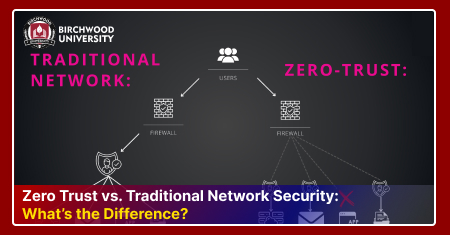Why an Executive MBA is the Perfect Choice for Working Professionals
Sep 25, 2024We are in an era defined by accelerated tech and digital evolution. With a transforming business ecosystem, the demand for competent leaders who can approach complexity is more significant than ever. For working professionals, pursuing an Executive MBA (EMBA) is not just about obtaining a degree but a strategic investment in their future. When compared to a traditional MBA, the value of EMBA depends on several factors, including your career aspirations, professional experience, and personal circumstances.
The EMBA has long been regarded as the premier option for executive management training by higher education experts. Recent survey findings from the Executive MBA Council (EMBAC) indicated a notable increase in satisfaction among EMBA graduates across various metrics. These include program quality and financial outcomes such as compensation and incentive growth. However, in addition to financial incentives, the appeal of EMBA for experienced executives includes offering opportunities to enhance their leadership skills in the modern world. It encourages them to leverage their past experiences while also acquiring new competencies.
Understanding executive MBA program
An executive MBA is specifically adapted for experienced professionals, particularly those in managerial or leadership roles. Unlike traditional MBA programs that generally cater to younger candidates, EMBAs require significant professional experience. This helps create a cohort to promote a rich learning environment where students can share insights and best practices from their respective industries. The program is designed to provide a flexible structure that accommodates the busy schedules of working professionals besides acknowledging the unique challenges faced by them.
Why you should prefer an executive MBA
Focus on innovation and entrepreneurship
The executive MBA programs emphasize entrepreneurship and innovation, encouraging students to think creatively about business challenges. When you sign up for an EMBA program, you are bound to develop a mindset geared toward identifying opportunities and driving change. For instance, after completing your EMBA you want to launch a startup and may apply your EMBA project learnings about market analysis, funding strategies, and business development while building your business.
Nurturing strategic awareness
EMBA programs encourage critical thinking and strategic decision-making. Through case studies and simulations, you learn to assess complex situations and make informed choices that align with organizational goals. Consider a scenario where you are analyzing a case involving a failed product launch. You can apply the understanding gained during EMBA to develop a more resilient strategy for your company’s next product introduction in the market.
Exposure to pioneering research and trends
As an EMBA student, you will get exposure to the latest research and industry trends. The incorporation of groundbreaking case studies helps you stay ahead of the curve, preparing you to confront future challenges. Top EMBA programs promote discussions around emerging technologies including artificial intelligence and blockchain, exploring their implications for business strategy.
Global perspective and cultural competence
Several EMBA programs offer students an opportunity for global study trips or international case studies. This helps students develop a broader worldview. It is essential to understand how businesses and diverse markets operate on a global scale. Picture yourself in a diverse cohort on an international trip to emerging markets. This experience offers a unique chance to gain valuable insights into the complexities of global business operations. You may find opportunities to engage with local entrepreneurs and industry leaders. Also, you may explore cultural nuances, market dynamics, and the challenges of navigating various regulatory environments. This immersive experience will deepen your understanding of international business strategies besides enhancing your ability to operate efficiently in an evolving global landscape.
Elevated leadership proficiency
Leadership training provided in an EMBA program often includes coaching, mentoring, and feedback, enabling personal growth. These programs focus heavily on leadership development empowering students with the skills to lead diverse teams and manage complex organizations. For instance, project managers may refine their leadership style by actively seeking feedback from their peers and seniors. This process can help in enhancing the team dynamics, encouraging better communication and association among team members. As a result, the project manager can achieve improved project outcomes, demonstrating the practical benefits of leadership development within the program.
Some other benefits of an EMBA program include:
1. Comprehensive skill development: EMBA programs cover a wide range of business disciplines encompassing finance, marketing, operations, and strategy. This comprehensive approach ensures that you emerge with a multifaceted skill set
2. Accelerated career progression: According to the Executive MBA Council 2022-2023 survey, over 42% of EMBA graduates reported receiving a promotion during the program. This reflects the fact that EMBA can significantly accelerate your career trajectory.
3. Access to renowned faculty and resources: EMBA programs involve experienced faculty members and industry experts who bring real-world insights and research to the classroom. This exposure enhances the learning experience significantly.
4. Strong alumni network: As an EMBA learner, you get the opportunity to be a part of the established alumni network. Networking within this community can provide mentorship, ongoing support, and opportunities that may lead to job offers and business associations.
5. Better compensation prospects: An EMBA program often yields a substantial return on investment. It helps you make a transition to senior positions with a corresponding salary enhancement.
Factors to consider when choosing an EMBA program
There are various factors that you need to keep in mind before selecting an appropriate Executive Master’s in Business Administration program.
1. Program accreditation - Accreditation guarantees that the program meets specific educational standards. Program accreditation by a recognized body increases its credibility and value.
2. Reputation of the institute - Spend some time to research the program's reputation alongwith the institute offering the course within the industry. This can significantly enhance your career prospects and marketability.
3. Alumni success stories - As the world has become a digital village, getting in touch with the alumni is not tough now. Investigate the track records of alumni achievements which can help you in making prudent decisions.
4. Location and global opportunities - Check whether the program is offering global opportunities, such as international modules or partnerships with foreign institutions.
5. Faculty expertise - If possible, research about the faculty's qualifications and industry experience. It is important because experienced faculty adds value to your learning experience immensely.
Conclusion
Organizations around the world require visionary leaders who can safely guide them to brighter futures. Pursuing an EMBA empowers professionals to not only meet these demands but also to excel as innovative and effective leaders. An executive MBA is a strategic investment for working professionals aiming to elevate their careers. The program offers a multitude of benefits which include focus on innovation, strategic awareness, extensive networking opportunities and leadership proficiency. An EMBA provides the essential tools necessary to thrive in the present competitive business environment. If you are contemplating higher education, consider the transformative potential of an executive MBA that aims to redefine your career trajectory and make a lasting impact in your field.






